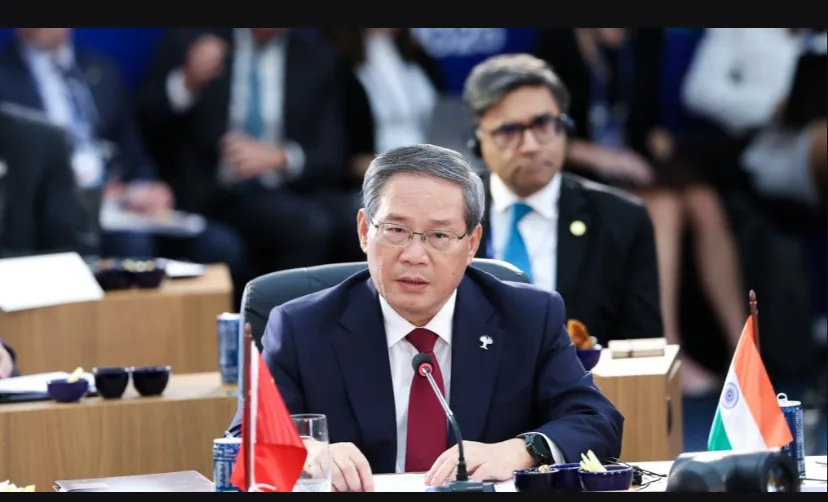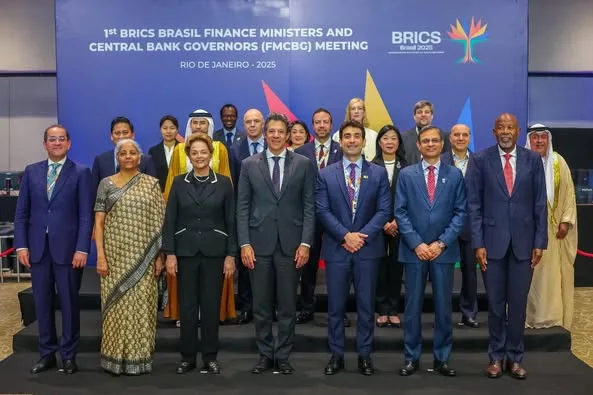The BRICS Summit, a gathering of leaders from Brazil, Russia, India, China, South Africa, and other member nations, has denied claims that the bloc is anti-American. Chinese President Xi Jinping and other leaders emphasized the group’s focus on promoting a more balanced and multipolar world order, rather than targeting any specific country or bloc.
The 17th BRICS Summit is currently underway in Rio de Janeiro, Brazil, bringing together leaders from the world’s major emerging economies. BRICS, a grouping of Brazil, Russia, India, China, and South Africa, has expanded to include 11 member nations, with recent additions such as Egypt and Indonesia. The summit serves as a platform for these nations to discuss global governance reforms, economic cooperation, and development.
During the current summit of BRICS leaders , they emphasised that BRICS is Not Anti-West and denies the claims ,stating that the group is pro-development, pro-multilateralism, and pro-social justice. Instead, BRICS aims to contribute to a more balanced world order.
The leader agreed that world needs for a more just and democratic world order, with a focus on promoting multipolarity and opposing isolationism.
The leaders Discussions included the increasing intra-BRICS trade, exploring the feasibility of a BRICS currency, and enhancing cooperation in areas like artificial intelligence, digital transformation, and food and energy security.

Key Outcomes
– *Global Governance Reforms*:
Leaders reiterate their commitment to reforming multilateral institutions like the United Nations Security Council, World Trade Organization, and Bretton Woods institutions.
– *Cooperation and Dialogue*:
The summit highlights the importance of cooperation and dialogue in addressing global challenges, with a focus on promoting a more inclusive and representative international order.
What is BRICS?
BRICS is a grouping of emerging economies that accounts for 29% of the world’s GDP and 40% of crude oil production. The bloc’s member countries share an ambition to diminish Western dominance in global governance and strengthen the international influence of Global South countries.

BRICS Summit Outcomes
– *Promoting Multipolarity*: BRICS leaders discussed ways to promote multipolarity and oppose isolationism, emphasizing the need for a more just and democratic world order.
– *Economic Cooperation*: The summit saw discussions on increasing intra-BRICS trade, exploring the feasibility of a BRICS currency, and enhancing cooperation in areas like artificial intelligence, digital transformation, and food and energy security.
– *Global Governance Reforms*:
Leaders reiterated their commitment to reforming multilateral institutions like the United Nations Security Council, World Trade Organization, and Bretton Woods institutions.
Reactions from Member Nations
– *China*:
Denied claims of BRICS being anti-American, emphasizing the group’s focus on promoting a more balanced world order.
– *India*:
Expressed hope that BRICS will promote cooperation and provide multiple choices for countries to exercise their foreign policy objectives.
– *Brazil*:
Emphasized BRICS’ role as a pro-development, pro-multilateralism, and pro-social justice force, rather than an anti-West alliance.
– *South Africa*:
Urged cooperation and dialogue to address global challenges.
Implications
The BRICS Summit highlights the growing importance of emerging economies in global governance and the need for a more inclusive and representative international order. While some view BRICS as a challenge to the US-led world order, others see it as an opportunity for cooperation and dialogue.
